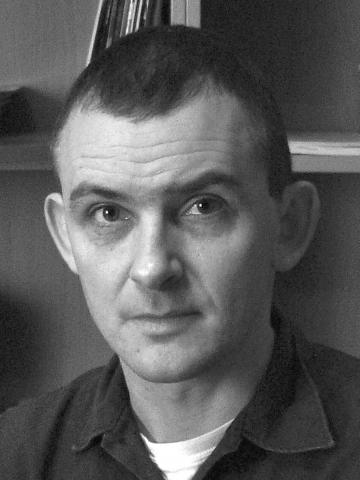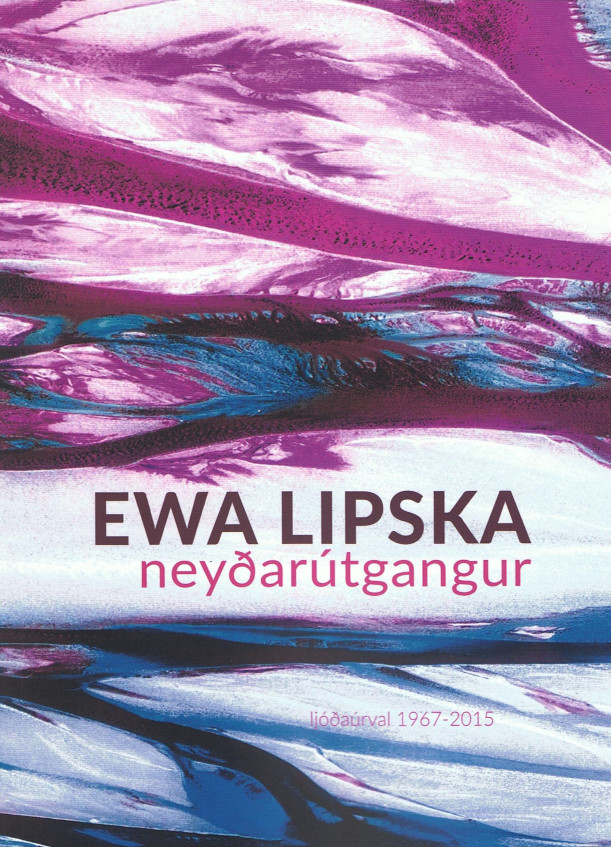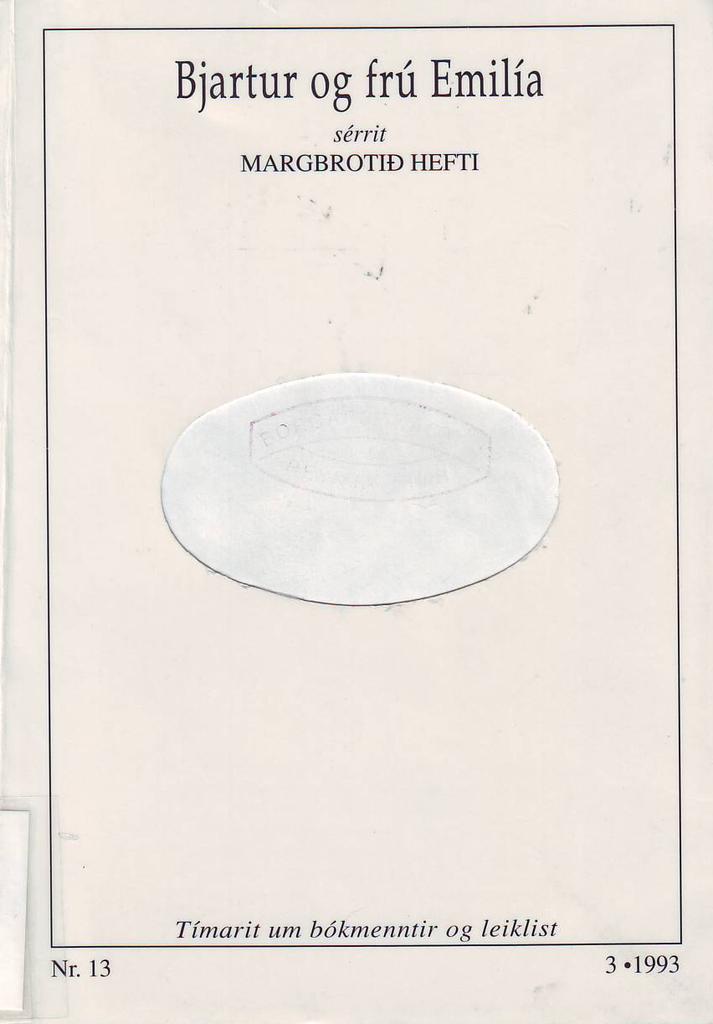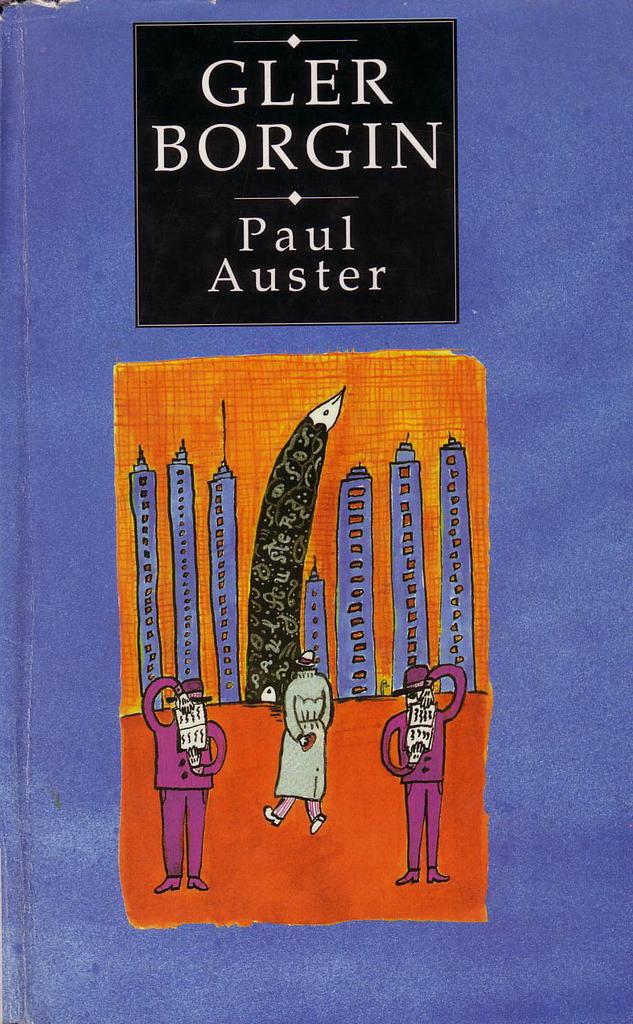Bio
Bragi Ólafsson was born in Reykjavík on August 11, 1962. He studied Spanish at the University of Iceland for one year and at the University of Granada in Spain 1985 – 1986. He has done a number of jobs in Reykjavík, at the post office, in a bank and a record store and was a member of different music bands for a number of years. One of them was the Sugarcubes, and Bragi toured with them in Europe and America.
Bragi's first published work, the poetry collection Dragsúgur (Draught), appeared in 1986. Since then, he has published other books of poetry, short story collections, plays and novels. His first novel, Hvíldardagar (Days of Repose) was nominated for the Icelandic Literature Prize in 1999 and the next one, Gæludýrin (The Pets) also in 2001. He received the DV Cultural Prize for the novel Samkvæmisleikir (Party Games) in 2004 and his novel Sendiherrann (The Ambassador) was nominated for the Nordic Council's Literature Prize in 2008.
Bragi is one of the founders of the publishing company Smekkleysa (Bad Taste) which has mostly published music and arranged happenings of all kinds. He has translated poetry and the novel City of Glass (Glerborgin) by Paul Auster. His own poetry has been published in foreign translations in collections and magazines, and some of his novels have also been published in translations.
Author photo: The Reykjavík Museum of Photography.
From the Author
From Bragi Ólafsson
The Belgian Writer Georges Simenon once said something along the lines of: "All emotions and all the formative influences that we store and build on as adults have already collected in us in the seventeenth year and no later than the eighteenth."
I agree with this about the eighteenth year. At that age I was already obsessed with what have been my main preoccupations since, music and poetry, even though I no more play any instruments. Through encountering the texts of certain poets and playwrights and novelists, this poetry obsession turned into a passion. I think it was these poets - mainly South and Central European and a few Icelandic poets that influenced how I think about poetry the most and also the ways I try to put into words the images and events that occur in my head. This is still relevant now when I spend more time writing prose than poetry.
I am quite convinced that a great deal of reading and experience of poetry is almost a necessary foundation for any fiction writing. The capacity to deliver ideas in a fresh and interesting way cannot be learnt through any sensible or logical means; it requires a steadfast denial that two plus two equals four (which they incidentally do not, I have been told); as well as accepting as a self-evident fact that it was the hand of God that scored the goal for the Argentinians against the English in 1986. I am not talking about needing to distort one´s senses; but merely training them to hear and see that things are not what they seem.
One of the most dangerous enemies of man is boredom. The fact that people are bored can lead to bottomless misery. One of the most potent medicines for boredom is a good imagination and one of the best ways to acquire a thing like that is a direct or indirect involvement with writing. I have at least not been bored much since I was seventeen or eighteen.
"It is easy to write if you know how. you just fit the words together correctly!"
(Dagur Sigurðarson: "Bragfræði" ("Metrics")).
Bragi Ólafsson, 2001.
Translated by Vera Júlíusdóttir.
About the Author
On the Works of Bragi Ólafsson
A Vulnerable Sergeant in the Legion of the Brave: On the Poetry of Bragi Ólafsson
&
The smile of life: On the Stories of Bragi Ólafsson
______________________________
A Vulnerable Sergeant in the Legion of the Brave: On the Poetry of Bragi Ólafsson
"Your boy is a poet, Sir!"
Max Jacob
In a diverse issue of the literary magazine Bjartur og frú Emilía from 1993 one can find Bragi Ólafsson´s article on the French poet Max Jacob, to advertise the publication of his translation of nine poems by the poet. One can verify Bragi´s claim, that these are poems by a man "with a great religious need", but that they are at the same time poems by someone "who does not believe in anything, but simply observes and wonders about everything he sees". That on one hand, they splice together absurdity, irony and humour; and on the other, a sympathy with all living things". Some parts of the article are in fact a pretty accurate description of Bragi´s own writing, which would in fact not be worth mentioning, if the text did not contain one of those lovely spelling errors that renew your faith in life and poetry and confirm that here is a poet writing about another poet. Bragi writes, that Jacob was quite a playboy during his time in Paris, but also that he lived all his life in dire poverty. Around the middle of this short article it says that in 1821 he left "the city to settle down in the village of Saint Benoit-sur-Loire, where he remained until he finally joined the aforementioned cloister for good". Max Jacob was born in 1876 and he died in 1944; his name is often mentioned in the same breath as the names of the most influential poets of this century, particularly the surrealists.
For many weeks, ever since the publishing company Bjartur asked me to write an introduction to Bragi Ólafsson´s poetry collection, I have felt like at least two bearded men standing on the corner of Bayswater Road and Lækjargata at the beginning of the poem Blue Hawaii, unable to find any words suitable for the spirit of the times. Like this I have stayed, like a letter in that surrealist poem – which by the way has nothing to do with Max Jacob – unable to find any words suitable for Bragi´s poetry, even less with any round-shaped conviction to spare, again a quote from the poem Blue Hawaii, where a vulnerable sergeant in the fourth legion of the brave confesses his powerlessness before a woman. The poem appeared in Bragi´s first book of poetry, Dragsúgur (Draft), which was published by Smekkleysa (Bad Taste Ltd.) in 1986. It was, without question, one of the most memorable poetry books to be published in this country in the eighties, not least in the minds of the generation which yours truly belongs to – if that generation exists anywhere and if there really is any reason to use the term "generation" in this context.
Bragi Ólafsson supposedly declared quite some time ago that he is a romantic in a time that does not allow any romanticism. He is also a belated surrealist who possibly – but only possibly – is living in the wrong time. The part about him being a romantic is definitely true, as his poems contain a blueprint to a delicate ecstasy which might well be called romanticism in the spirit of our times, even if there is no inflated ego behind it, or a poetic need to be lulled to sleep in the waves of the ocean. Because of the smallest incident we are not where we thought we were anymore; we have "a bit of a revelation in the middle of Grettisgata" (a street in downtown Reykjavik Transl. comment). Suddenly we are in a village square in southern Europe (Hringekjan (The Carousel)), a light is lit, probably accidentally, and Jesus himself is not a guest in a Norwegian nineteenth century dining room anymore (Kom Jesus vær vor gæst (Come Jesus Be Our Guest)) – the south-facing window suddenly faces east, no matter how closely you watch it (Suðurglugginn (The South-facing Window)): the poet Max Jacob leaves Paris in 1821. These small revelations are therefore not just on the corner of Bayswater Road and Lækjargata and they fascinate us, without us being able to lend them a bullet-proof meaning. In this case this is a clear advantage, if not a relief – the poems contain knowledge "that it is so wonderful not to use / in any way", a phrase taken from the collection of poems Spiladósin (The Music Box). They keep us guessing and that is what delights us. Post-modern poetry can have this effect on you: it does not make a claim to the ancient harmony of the world; Bragi does not write his poems in the language of Eden – the meaning of words is constantly being shifted and things are being rephrased, proving once more that language does not fit as well with our world as we perhaps dream it does – words are maybe nothing more than small boxes that we can open and close as we see fit. References to other languages in Bragi´s poems seemingly add to this post-modern dizziness: the man who guards the dandy palace in Telc "dreams of the tour guide, the girl" and "He finds her mighty pretty and especially in the language that he does not understand", quoting the poem Svefn (Sleep). The language in question has to be simpler than what we are accustomed to; we, who can not find words suitable for the spirit of the times, and can call anything by different names and play around with those same names all the way till the end or rather till the bitter end: "Had I asked my mother, who knew these movements from her youth, her answer would have been of a foreign kind and would not have thrown any light on the nights that followed" (Af einfaldri ástæðu (For a Simple Reason)). Therefore there is no hope of us putting our arms around the beloved Susan, whom the vulnerable sergeant addresses in the poem Blue Hawai, with any round-shaped conviction.
For some reason I find the poetry collection Dragsúgur to be crystallized in the abovementioned poem, Blue Hawaii. It has stayed with me, like a hackneyed rhyme or the base line of the pop song Blue Eyed Pop, which this "Orpheus, an electric bass player of the inner world" in question also is responsible for. Not just because it has in its opening lines two bearded men who have trouble finding words suitable for the spirit of the times (which no one can describe except with the aid of ridiculous pseudo-concepts from the post-modernist factory: everything functions and runs and everything is mixed up; everything is inexpensive); but because of the wonderful absurdities, which take shape(s) and intensify as the poem continues: "The sweat of lovers in a Zurich suburb / breaks out on a seamstress in Laos" – in the lines that follow, "a metal blower in a shabby / North-Norwegian basement / […]" dies "a bitter death into his pipe". We travel from one stage to another in one poem after another: no central point is discernible and we do not quite know, who the voice in the poem belongs to. Fortunately however, Bragi has not in his poems found words suitable for the spirit of the times, these lines seem – and now one must be precise – to be spot on, at least considering the numerous evenings that went into re-reading them, after it went dark and even light again, in the later half of the nineties. And perhaps this fact says more about the spirit of the times than many words.
It may sound peculiar, but somehow I do not find it inappropriate, that there is in our time a poet who in his poems is simultaneously close and very far away: in one moment he is a belated and invented "flaneur" who opens up one city after another and then steps into a steaming puddle of urine in Fischersund, Reykjavik; in the next he is completely absent and no discernible signs of him other than a black jacket on a sky blue chair, where, "the shoulders are offset against a white wall / like church spires, built from limited means", which is a quote from the poem Jakki á stól (A Jacket on a Chair). In Bragi´s works, those parallel traditions of 19th and 20th century poetry converge: on one hand, the relentless glorification of the poet who walks around in a black jacket, robbed of a future; on the other, there is the death, black as ink, of that same poet, his absence, and a night that blows through the world like an "illiterate wind". Obviously, Dragsúgur was an extraordinary debut from a 24 year old poet, and the book has been out of print for a long time and is now passed between people in threadbare xerox copies, which not uncommonly have notes on them saying: "… sadly missing from The Blood Tavern, Dance Song completely gone…"
…like an illiterate wind. Dragsúgur is a book of death and the deceased: it is simultaneously frightening and fascinating - "[…] something tremendous was waiting outside. In freshly trimmed grass" (Á jarðhæð (On the Ground Floor)). The title of the book is an undeniable reference to a haunting; the wind does not go down: Death is "A lady who has not arrived yet / with red lips / at night", a quote from the poem Komutími (Arrival Time). In another place he writes about cold feet, sticking out "from underneath a white sheet" (Undir súð (In the Attic): the line between the living and the dead is very vague. Even better – that line is unpretentious and is formed without the poet putting on a sanctimonious air, as if Bragi has managed to form a connection with a whole other era than the one in which we live. The poems have the air of being written in the middle of the experience of night, before the days of television, or after the television program has come to an end and the dead start walking around. There is also a lovely mood of frivolity, which I think might well be called post-modern, and that frivolity becames increasingly evident in Bragi´s later books. In Bragi´s latest poetry book, Klink (Small Change, 1995), for instance, he quotes from the aesthete Rainer Maria Rilke and The Cambridge Music Guide on the same page, to a very nice effect. We are speaking about frivolity at the end of a century, which replaces the tortured existence of the subject that every other poetry collection published at the moment is about. One can safely say that the poet has left his own self behind in Dragsúgur, with the exception of only a handful of poems. It is for instance quite unclear who it is exactly who listens to the creaking of the mountain rock and ties his horse to the darkness of Hólsfjöll mountains, in one of the most thrilling poems in the book Á Hólsfjöllum (In Hólsfjöll Mountains). The mantra of its first part emphasises this absence, it is taken from a poem by Þór Eldon and goes like this: "and someone is dancing with me" – it does not matter who.
One of the most powerful poems in the book, Níutíu kílómetrar á sextíu mínútum (Ninety Kilometres in Sixty Minutes), is about "some awful forgetfulness" and one might say that this awful forgetfulness is what provides one of the strongest undertones of Dragsúgur – even though the dead will not be forgotten and that splash of blood on your forehead will not go from your memory so easily. The poems in the book are not concerned with the world and the realm of experience; as most of them take place inside the awkward space of forgetfulness, where the wind does not go down and where the lines of poetry have no regard for those that came before. They happen in the Back Alley, where "someone" speaks them out – "And partly because of the draft they have closed the door to eternity, but opened the window into the night" (Bakportið (The Back Alley)). Out into this night Bragi stares in his first book, and notices the beautiful woman "who has waited for her husband / longer than other men can remember" and is surprised at her own "white beauty / in the eyes of people walking past" (Þessi fallega kona (This Beautiful Woman)). This woman is dead and the poet´s words brush against her and against each other in a ghostly repetition, where "My wife – if I had one –" spreads "a white cloth over a table" (Dagsetning (Date)) and "The man is the man in the moon / the woman his wife " (Þessi fallega kona). Partly because of the draft…
This aforementioned forgetfulness has nothing to do with sleep or lethargy, and much more to do with keeping watch – in this case a ghost watch. As I said earlier, it takes place "After the final evening news" (Jakki á stól (A Jacket on a Chair)). This forgetfulness is rooted in modernist ideas about literature that have become fashionable again in recent years, according to which poetry describes the disappearance of the gods, after being the language of those very gods for centuries. That disappearance has long since disappeared, and all that remains is forgetfulness (which in fact becomes ecstasy in Bragi´s poems); words that conjugate countless times and more often than we would want; adjectives that change degrees; poets who watch "the phonic changes in the language; the distortion of the symbols"; and take "part in the passionate discussion about meanings of words". This quote comes from a modern high-rise, the collection of poems Útlegð (Exile)) by the French poet Saint-John Perse, translated by Sigfús Daðason (The Icelandic Literature Society, 1992, p. 37 and 39). Bragi borrows some of the mantras of his books from poets who wrote about this disappearance (among them Rilke, as mentioned earlier); however those poets can not disappear from his own language, contrary to the gods in the past. Therefore one might say that Bragi himself has not forgotten a thing and that in the aforementioned forgetfulness are also memories of the dead, or rather the oblivion that causes the grandmother who has stopped eating her medicine to dance with imaginary people in the living room. It is hardly a coincidence that in the first poem of the third poetry book (Ytri höfnin (The Outer Harbour, 1993)) the poetic voice is caught in the act, standing by the book case in the reading room where he has been moving books around that countless afternoons have gone into putting in order: "Trakl is no longer allowed to stand next to Rilke" (Merkileg iðja (Something to Do)). In itself this task is quite pointless, as this poem clearly shows, but it may be precisely what the post-modern poet enjoys writing about; his scope for action is limited, his church spires are built with limited means.
Dragsúgur occupies a very special place in Bragi Ólafsson´s works, and in fact in all Icelandic poetry in the eighties. During that time Bragi, along with Sjón, was at the forefront of poets who belatedly introduced some form of surrealism to this country, but at the same time avoiding too strong an association with that movement. Some might want to talk about an anachronism in that context, but let us not forget that surrealism is a powerful ghost that can rear its green head anywhere and anytime, creating a nasty draft, causing "Restless specks of dust on a marble floor" (Komutími) to move around even more; the flames from the candles to "flicker constantly all night like two sleepless eyes" (Dagsetning). The reason is not the least that surrealism is closer to a state of mind than to any particular school of literature, contrary to what some might say, and of all of Bragi´s poetry books, this state of mind is most prominent in Dragsúgur. The modest poetry style is nevertheless still there, with all its polite phrases, as well as a modesty which is both a literary motif and perfectly unnecessary, as no one has "imitated" the modernist (poetry) style better in this country than he has: "Windows are square and people´s faces / not unlike eggs in shape" (Veisla (A Feast)). Maybe Bragi´s art is having breathed new life into that wind and shaped it into another form for us, one that amounts to a lovely draft.
The difference between the first two books, Dragsúgur and Ansjósur (Anchovies, 1991), is therefore the difference between day and night. We leave the blood tavern – (where the sole purpose of our visit was to enjoy ourselves staring at the word free women" (,,lausakonur") and to read this sentence: "And toys for the children, if they are still alive") and suddenly we have boarded a bus with a strange girl who leaves a whole neighbourhood behind. Einar Örn Benediktsson´s psychedelic and loud cover illustration sets the tone, perhaps an unstoppable festival is impending – the one written about in the rain-soaked flea market that the poem Spiladósin undeniably is. In its peculiar way, this book is an ode to a way of life that the poetry style in Dragsúgur celebrated: a free urban lifestyle, where words are bought and sold and no one is anything close to what was intended, least of all the one who we have chosen as our accomplice. I did not choose the phrase "bought and sold" by random, as Bragi´s readers should recognize: his poems contain many references to shops and commerce, reflecting the financial connotations that the act of writing has had for centuries. In Ansjósur the haunting is over, and we are faced with having to find new words for things that go wrong; and also with the surrealistic resurrection of the subject that was shredded (and even headless) in Dragsúgur; but in Ansjósur waltzes through graveyards and harbours, as if there is no need to describe the nightmare now, which is an indirect quote from the poem Námskeið í Lissabon (A Course in Lisbon). Without question, the main innovations in the book are a number of prose poems, that have an formal air about them, as if they have been translated from a foreign language. At the same time, they confirm that after Dragsúgur there was no other route back to the day than through the subject, which now makes itself heard, describing small but captivating moments in restaurants, in clothing stores and in a bar in Amsterdam, to name a few examples. Therefore Bragi is in fact describing his own writing when he says of Max Jacob, that his work is "pieced together by a man with a great religious need who does not believe in anything, and simply observes and wonders about everything he sees" (see the previously mentioned Diverse issue of Bjartur and frú Emilía, p. 25). Here, he opens "up one city after another" (Gönguferð (A Walk)) and they are all unfit to live in. The main characteristic of the poems is still the shaking context that he writes about in the poem about the past; but in some ways the book is "more logical" than Dragsúgur, even if the rattle noises in the motorcycle-mailman´s snake are "as high as the hill / that their route runs through" (Gluggapóstur (Snake Mail)).
This shaking context continues to mark the poems in the two latter books, Ytri höfnin (The Outer Harbour, 1993) and Klink (Small Change). At the same time, this ongoing reworking of the modernist style becomes increasingly the focus of Bragi´s poetry; one might even say that these books are carried by the poetry style alone – that the writing is almost about "nothing" – therefore it is not surprising that the poet is startled when he suddenly sees in front of him the "shop sign Nesval" in the town Seltjarnarnes, in a poem addressed to the Czech poet Vitezslav Nezval. The presence of the modernist heritage is so great, that a few of the poems even touch on Kafkaesque father authority, among them the aforementioned first poem in Ytri höfnin, Merkileg iðja, that describes a life lived in constant fear of punishment. The limited freedom of action is in fact one of the leitmotifs of Bragi´s poems, and is partly evident in the extreme minimalism of his choice of subject matter, and not least in the previously mentioned modesty. There are quite a few allusions to "the poet" who is "no longer anything / like what was intended" (Spiladósin), as if the poems were written "so that the focus may shift to something else" (Frjálsar hendur (Free Reign)). It is tradition that is limiting the poet´s freedom of action rather than the relatives, although they are always there from the very first of Bragi´s books, the same ones who gave him shivers in his youth in the final poem of Ytri höfnin, Úr höfn (Off Bay), and who cut his future apart for a few silent moments in Dragsúgur (Kvöldjakki mannsins hennar (Her Husband´s Evening Jacket)).
In a sense you might say that Bragi is not writing about anything other than the aforementioned heritage of modernism – about the gods who can not disappear from his language – this is supported by the fact that he places his poems in the postmodernist outer harbour and not in the inner one; in the harbour which in some sense does not exist and is far away from the activity of the inner harbour: "In Tryggvagata street/ there were almost ships at bay", in the poem Metnaður (Ambition). For some reason, it happens to be the "first edition of the first book" by the entrepreneur-poet, Einars Benediktsson, that "is sitting in a puddle of / red Faustino" when the party has come to an end in the poet Að utan (From Outside). As before, it is all about how it is said – the source of meaning is not in any other place than in language itself, and the poet has said that death would be comparable to "when the adjective is taken from you / then the verb and then the noun / and you are standing by a lake / staring straight ahead / at the thing that you do not know exists" (Til (Exist)). It is worth mentioning that Ansjósur ends with "the poet" giving up his search "for the word I can not find / for the thing that you shake and then it starts to snow / on the famous underwater buildings" (Snjókoma (Snowfall)). In Bragi´s later books it is therefore not the subject matters in themselves that fascinate, even if interesting attempts are made on the big words – death and God – but the civilized style, the postmodernist version of an old-fashioned bureaucratic style – the politeness of someone who orders a drink in a restaurant and has everything invested in his order being communicated correctly.
Perhaps there is no way to describe the poems in Bragi´s last poetry book except in their own words: because just as before, the poems are about names, about things that surprise us. We encounter another lovable spelling error: There is a note on the flyleaf of the book that says that photocopying it is prohibited "without a written permission of the translator and the publisher" (my italics). Bragi is a translator, his poems are translations, possibly from the language mentioned earlier in this preface, which is not Esperanto, even though one of Bragi´s best poems is (not) written at the world conference of Esperantists. As before, the tiniest incidents become "a cause for big adjectives" (Nafngiftir (Names)): a greeting that comes through the mail slot and "folds together in the narrow slot" turns into a sail that the seaman spreads out "after he has chosen his destination" (Frá heimsþingi esperantista (From the World Conference of Esperantists)); tired explorers "decline in their seats / like setting suns" (Landkönnuðirnir (The Explorers)). We probably prefer the poems have a distinctive core, that renews itself from one book to the next, from one poem to the next; but that demand is both tasteless and untimely, it would counteract everything that has been achieved here; because the poems in the latest book are in a strange way not the least about meaninglessness, that is about nothing, or next to it. We can assume that the world of the poems is self-sufficient in all its magic and has little or no use for any other worlds (,,Now I do not wish to be aware / of other worlds", he says in the poem Snjór (Snow)). It is also fitting in this context to say – even to declare, as strange as it may sound – that the meaning of the poems is constantly being postponed – "that the future holds an unexpected phone call", quoting the outer harbour (Úr höfn). Statements like this are after all fashionable; the meaning is to be found in a whole other place, we can not put it into words and it can possibly not be put into words except in another language, in the unforeseeable future of the phone call. After all, it is not until tomorrow that the pennies emerge from underneath the snow, as they do in the mantra of Klink, which is borrowed from the poet Dagur Sigurðarson. But regardless of such postponement of meaning, Klink is confirmation of the subject that is constantly being planned; the subject of the vulnerable sergeant from the legion of postmodernism, who can not forget (who can blame him) the legion of the "brave" modernists – Jacob, Sigfús, Rilke and Trakl – and I think that one of them has just handed him a glass, I am pretty sure about that, and it was probably an accident: "I was going to say no, but then I decided to accept, because earlier that day I had won a small but undeniably a personal victory, I thought" (Sigrar (Victories)). That victory is not explained further in the poem, but it is Bragi Ólafsson´s victory, and it is undeniably followed by a considerable draft.
,,You boy is a poet, Sir" is a quote from Bragi´s translation of the poem Bókmenntir og ljóðlist (Literature and Music) by Max Jacob, and those words are reinstated here; because the winding paths between the trees, that the ocean has dried off, will have kindled dreams in him about the streets of Naples – the green copper of a church roof in an unnamed village square in the southern part of the continent stays behind in a blue sky, and again we find ourselves in Grettisgata.
God almighty forgive me, should I speak in error.
Eiríkur Guðmundsson
(from Ljóðaúrval Braga Ólafssonar (Bragi Ólafsson´s Collected Poems, Bjartur Publisher, 1999)
______________________________
The Smile of Life: On the Stories of Bragi Ólafsson
Icelandic fiction writing in the 20th century ended in a cave, not in the faraway mountains of Afghanistan, but in Heiðmörk, an innocent area of outdoor types and murderers. The last protagonist of the century arrived there in a taxi, after a ten minute drive from Reykjavik. A flashlight, taken from the glove compartment of the car, was needed to find the mouth of the cave, which turned out to be only a tiny hole, "like a peephole into the ground" (Hvíldardagar (Days of Repose, 191)). After a few days of rest he settled in a cave – which appears in front of you as a reader like some kind of a smile of life – where he is apparently planning to perish after a week of drifting about the city of Reykjavik, a curious anxiousness and timidity which would be unheard of, if we had not read as many novels as we have, or lived our lives in the way we have. The novel lay down to rest in the shape of a man, who simultaneously seems to be exhausted and simpleminded enough not to get exhausted at all; a man who seems to have entered the Icelandic novel through the countless side streets of European novels in the 19th and 20th centuries. Or doesn´t the protagonist in Bragi Ólafsson´s Hvíldardagar remind you of many cowards in world literature, men who live in constant fear under the gaze of others; are pathologically dependent on other people´s approval and you hesitate to call cowards, because they are like us? Do we not find them in Dostoevski´s The Double, in Franz Kafka´s The Trial, and in the second last novel of the Portuguese author Jose Saramago, All the Names, to name a few, and completely at random, because there are so many more. And is there not something irresistible about these characters, something that relates to literature and literature only. Even the most confident, determined men of action, the life of every party, say that they identify with such characters – I have heard them myself – the timidity seems to touch everyone, fascinate them, as if deep inside there is this core, this thought, that runs through Bragi Ólafsson´s works and some might want to label a stylistic device of a cheaper kind, and could be paraphrased like this: nothing must go wrong, or I will go off the rails, settle in a cave, while the taxi driver´s ticking meter turns the final moments into money. This is the paralysing fear of going off the rails at the smallest prompt, the fear of life changing in the blink of an eye into one universal conspiracy. The smallest incidents are blown out of proportion and turned into insurmountable problems, the phone rings and it feels as if the whole world is on the line, the world that God created in six days. He rested on the seventh, while all our days are days of rest. The cowards fascinate, because they are like us and they wait for the smile of life that possibly awaits us – if not in freshly trimmed grass, then in a cave in Heiðmörk.
This fragile state that literature is about is in other words a main characteristic of Bragi Ólafsson´s work – obviously, or he wouldn´t be a writer. It lurks beneath the surface of the poems – something tremendous is waiting outside, the future, all carved up, is in the air; the rain drifts sideways – and this leitmotif becomes stronger in the prose works: "They has no limits, the disasters that befall people. Although dying is not the worst thing. Not necessarily. Financial chaos, for instance, is a much more serious thing because you can not bury it in the ground", a sentence taken from the short story Söguhetjur (Protagonists) or Herbergi með útsýni (A Room with a View), from the collection of stories Nöfnin á útidyrahurðinni (The Names on the Front Door), which came out in 1996. Everything is hanging by a thread, nothing must go wrong, we know this all to well – here is another quote:
,,Don´t you ever get frightened when you think about the blood that runs through your body? I often start to think about it when something reminds me that I am just a normal man, constructed in the same way as other people; who I know, or in any case suspect, are composed of meat, blood, and other things that I do not wish to name. I go all limp and I frighten myself when I think about this; not in the sense that fear I might cause myself harm, but because I get a feeling that this mechanism at work within me is so fragile, that nothing must go wrong and I might literally drop dead. I get so vulnerable that my next thought could easily be the end of me. It is a bit like standing right at the edge of the abyss at the Reykjanes lighthouse and literally not being able to decide what do with yourself"
(Nöfnin á útidyrahurðinni, 145).
Nothing must go wrong, the rain drifts sideways... In a way Bragi Ólafsson´s prose works are characterized by sidestepping, reality gets distorted, but not enough so that it becomes unrecognisable, or wasn´t it distorted begin with? Why does the protagonist of Hvíldardagar decide to bail out, to run off? No one knows the answer, but everyone can understand the man perfectly.
A Wrong Place at the Right Time
Bragi´s prose works are in a sense characterized by anachronisms, as in when Shakespeare lets a clock strike in the play about Julius Cesar, or when a cannon is fired in King John, to name a few well known incidents from world literature, that sound so good in reference books. These anachronisms are always unsettling and have something to do with the need for some kind of foreignness in the present; a need that Bragi has been filling with the surrealist inclination in his poems. But it is also connected to geological unrest, fault lines in the imagination of a modern era that possibly has passed. As in his poems, Bragi has been inspired in his prose works by the discourse on modern man who is either wandering the streets of the cities with his head held high, probably dressed in black, and studies carefully everything he sees; or alternatively, just can not get a foothold, does not know what he is supposed to do with himself – ahead is the dizzying abyss, which is nowhere steeper than within himself. Bragi´s works combine on one hand the modernist aesthetic, a modern consciousness that is familiar from 20th century literature, and on the other hand a post-modern distance that we can not help being fascinated by, because we have such a strong desire to live our lives free of any baggage weighing us down. The quest for defining moments that marked the novels of the pioneers of modernism at the beginning of the century continues, both in poems and prose. Only, the ecstasy is being described in a new way, which is such that it does not occur to you to try to look for them in the real world, the text must suffice: "The main thing remains to find the right moment, just like when Elvin Jones, in the year nineteen-sixty-one, misses a beat on the snare drum, just to give it another whack in the wrong place at exactly the right time" (Söguhetjur (Protagonists) or Herbergi með útsýni (A Room a View), Nöfnin á útidyrahurðinni, 148). Modernity is there – the legion of the brave is still around – but is has also passed -
,,I began to contemplate, in light of how Bjarni phrased his comment – which of course was meant as a joke – who is a modern man and who is not. I think I have come to the conclusion that I am not. And when I think about the events I told you about earlier, I am most inclined to think that in order to count as thoroughly "moderne", you would need to be newborn, something like one to five days old, which is to say, not having come into your parents´ home yet. After that you will have become a part of the past. It is as simple as that. Or complicated. Or like my great friend and avid postcard writer, Heinz, would say: Warum einfachen wenn mann komplizieren kann?"
(Nafnarnir (The Namesakes), Nöfnin á útidyrahurðinni, 42).
Many Notes But No Song
Nöfnin á útidyrahurðinni was published by the publishing company Bjartur in 1996 and contains a collections of texts, stories, even poetry. Some would probably say of this work, that it hides a dream about another work, possibly an unavoidable novel; based on what one character in the story says about someone playing an instrument: "I think I have never seen or heard any man play as many notes without it becoming a song" (La fete continue (The Feast continues, 69-70)). Perhaps people have felt that the names on the front door were too many. Gradually though, they learnt to accept the book on its own terms, in the same way that they accept a house number that they bought when they were drunk but has now begun to get weathered above the door (as in the story/poem Veður (Weather, 90)). All the talk about Nöfnin á útidyrahurðinni being some kind of a transitional work in Bragi Ólafsson´s career, between four poetry books and a novel, is however doomed to be misleading, and can easily prevent one from noticing a clause such as this one – a clause that seems at first glance to expose Bragi, the author: "But Nada. How brilliant! Could what I had experienced have been expressed any better? Why hasn´t anything of such a frightening caliber found its way into my books? Nada. Nothing. My books are full of something else; something that makes no difference whatsoever" (Nafnarnir, 39). One could say that Braga Ólafsson´s books unite these two things – the frightening caliber mixed with something that makes no difference in any way, but at the same time in every way, because they lead eventually "into the dark vault" where we inspect the "strange ceiling of the cave with the help of the light" (Hvíldardagar, 191).
… the frightening caliber, something that makes no difference. One might say that in a way the novel Hvíldardagar is exactly about that, but it is also tempting to say, like a literary theorist, that at the same time it is strangely multi-layered, as if there is something that remains to be said that is waiting to ascend from the deep, like it is full "of something else". But what? At the same time the story resists interpretations that make it more complex than it is; in a way the story is more solitary than the protagonist – in his flight from other people – wants to be, and even more solitary than Nöfnin á útidyrahurðinni, which no one, to my knowledge, has managed to put under a roof, in any place, not even for a night. One thing is certain: Hvíldardagar is both more European and more modern than most novels that have come out in this country in recent years. Not necessarily more post-modern – or is it? – but, as previously said, it has a close relationship with many modernist works on similar themes. The French author Gustave Flaubert once talked about his dream of writing a novel about nothing; Madame Bovary was meant to be such a story. Much later Europeans wrote stories about nothing, banished the subject from fiction and let the language and its draft do all the talking. Bragi does not go so far as to dissolve the unified consciousness in Hvíldardögum. This time the front door has only one name (in fact we don´t know what name it is). At the same time one can not help thinking that in its own way, Hvíldardagar is a (European) story about nothing; therefore oddly true to its modernist origins, which in this case are not particularly brave – there is no army legion here. Instead, we are among the timid and in fact we feel quite at home here. The story describes an "uneventful" week in the life of a 30-ish stock worker – and in that sense is about something unremarkable – but it is not the events in this story that matter, but the voice and the perception that keeps the novel afloat, a perception that reminds you of something fragile, is marked by sensitivity, an odd happiness that neither is rooted in a struggle with a demon nor a good. The story simply does not accommodate words like that; that luggage was left somewhere, thank God.
Fellows of the kind that we are introduced to in Hvíldardagar have wandered the pages of European novels, like heroes with no headlights on, for over a hundred years. It is the "clerk", that Fyodor Dostoevski wrote about in The Double; it is the city dweller who appears in the novels of the Italian author Antonio Tabucchi, sweating profusely in Lisbon on his way to a rendezvous with a dead poet. The story therefore has a wide frame of reference without pretending to be more complex than it is. As always, Bragi finds it difficult to forget the modernists. Hvíldardagar contains a refererence to Guðbergur Bergsson´s story, Hjartað býr enn í helli sínum (The Heart is Still Living in Its Cave), albeit a small one: towards the end of the story the protagonist remembers an Icelandic novel he borrowed in a library years ago which "was about a divorced man who somehow came to spend a few days at the Hlemmur bus station. I remember that the grey cover showed a man running" (Hvíldardagar, 184).
In fact, Hvíldardagar has undeniable echoes of Guðbergur´s story – both stories are about a man who loses his way and drifts about he city. Both men are in the mortal danger that accompanies such drifting – or doesn´t the story go that the poet Nerval wandered the streets, lost to himself, the day he hung himself! (102). Procrastination is a direct ticket to death. One man is going through a gloomy existential crisis, has recently been divorced and his life is in one big mess; but the other one does not seem to have any real problems to deal with, but nonetheless feels that he "is somehow loosing the fight against a barrage of unforeseen events and commitments" (123), quoting from the story. The man in Guðbergur´s story is sitting in a chair at the beginning of the story, devastated, and wants most of all to cry his eyes out. He has moved six times in the less than a year that has passed since the divorce, and has just moved into yet another bedsit, his things in a pile on the floor, mirroring his own mental state, I assume. In this book Guðbergur goes, as he often does, to the deep end of the ocean; he is in the cave the whole time; his subject matter is the psyche in a fairly antiquated meaning of the word, the man in the story rises from the deep that has accompanied the subject ever since the 19th century. The people who are seen moving about deep inside the cave in the story like living shadows, have "their form and way of thinking hidden and buried in another time, another realm, way back in antiquity" – therefore they charge about in Guðbergur´s story, "lonely, confused and their own worst enemy". The man is tossed between shelters, he has hiding places all over the city, miserable and cold ones – "some were dens outside the city, far away from the last bus stops", which of course reminds us of Maríuhellir (The Cave of Mary); but contrary to the protagonist in Hvíldardagar, the man in Guðbergur´s story does not wish to disappear without a trace, or in his own words: "Life is the worst thing of all and worse than death; therefore I choose what is worst, but best for me at the same time. I do not try to leave the city in the middle of winter like those who vanish and do not wish to be found again; silently, they vanish back to the earth without a trace. No, I do not run away to the hiding place of death because I might forget Dóra there" (Hjartað býr enn í helli sínum, 60-61).
The thoughts of the protagonist in Hvíldardagar are not explained in the light of a bygone era, they are not covered in the winter darkness that modernity has poured over the characters in Guðbergur´s novel, his way of thinking is neither hidden nor buried in another era. The man in Hvíldardagar is certainly hounded by his past; in the beginning of the story he listens to a radio interview with an old schoolmate who climbs mountains, while our man jumps each time the phone rings and can not make up his mind about whether he should go to the bakery, or go to the car that he left on Hringbraut; go hiking in Öskjuhlíð, or lie down on the sofa with the memoirs of Dr. Li. This appeals to us, we are fascinated by the coward. He feels that he can not make a move without running into old schoolmates, and this haunting of the past is so insistent that female classmates from his old secondary school make him revisit and re-enact an incident from his teens, an incident that he does not even remember himself: "You are never safe. At the same time when everything seems to be going in accordance with decisions you have made in peace and quiet, there is this constant, restless threat lurking around the corner" (158), - as before he hints at something terrifying that is waiting outside, "I become so vulnerable that the next thought could easily be the end of me" (as earlier). But it is not until the very end of the story that Bragi lets us into the cave which has by then become preferable to all other places – it awaits us like a smile on the earth.
An interpretation of Hvíldardagar depends partly on how we understand the final chapter of the story, or rather, its very ending: the protagonist´s taxi ride to Heiðmörk and his possible demise in Maríuhellir (The Cave of Mary), as the meter keeps ticking, and the taxi driver strokes his moustache with his thick index finger. The story possibly chronicles the last week in the protagonist´s life – and this possibility furthermore provides an opportunity to compare it with Guðbergur´s novel, which is in fact about the last 24 hours in the life of the divorced man, his death walk through the city that ends with a decisive event: murder!
Hvíldardagar possibly ends with a death, or rather: in the idea of a death. The protagonist´s death at the end of the story is the protagonist´s idea of a death and it is consistent with this character, as he is constantly pondering different variations on reality, especially variations that have to do with of death or disappearance, not just other people´s disappearance but also his own. He watches himself die, but possibly he does not die – death is therefore distant in the story, it is sometimes as if the protagonist is not serious. Again, this sentence from Nöfnin á útidyrahurðinni springs to mind: "We did not say anything to each other and I do not think we said a word about Hannes´s death until two days later, when Lydia said something about being personally quite prepared to die herself, if she just did not have to notice it" (La fete continue (The Feast Continues, 73). At this point one feels that it is precisely The Names on the Front Door that in the end holds the answers to all the questions that Bragi Ólafsson´s oeuvre provokes. Even though, and still precisely because they (the names) give us no answers – we know nothing about what hides behind the door, but we can expect it to be something tremendous, perhaps freshly cut grass, "dozing beneath a stripped mountain" (Á jarðhæð/Risið, Dragsúgur, Ljóðaúrval (Draft, A Collection of Poems, 30/31)).
The Next Thought Could Easily be the End of Me
The theme of Hvíldardagar is possibly the death that blazes through the language like wildfire, the death that means freedom and risk, the death that the poets write about when they wish for an outrageous fortune, a bloody fate, as if death was under their control. The theme of the story is the death that is possible – and perhaps we can go so far as to say that the story originates in such a death. The numerous allusions to transience are a clue, the protagonist´s reflections on what people leave behind after their earthly existence, on how vulnerable a human being is – "from a distance he is like an ant working on some trivial task and then in the very next second he drops dead; but instead of someone stepping on him, he falls off a roof or his heart suddenly stops beating", a quote from the story (153). Death itself, however, is distant, as the story does not end in a real death but only in a possible one – the protagonist has an imagination but he can not die. He stands at the very edge of the cliff, but can not decide what do to with himself. Is it possible that a man dies without noticing it himself? He can read the names on the front door – they frighten him – but he can not open the door – behind it there is a magnificent space and it grows with every new book by Bragi Ólafsson.
© October 2001, Eiríkur Guðmundsson.
Translated by Vera Júlíusdóttir.
Articles
Articles
Neijmann, Daisy L., ed. A History of Icelandic Literature.
University of Nebraska Press, 2007, pp. 446-447, 498
Awards
2006 - The Icelandic Bookseller´s Prize: Sendiherrann (The Ambassador). As the best novel of the year
2005 - The National Broadcasting Service´s Writer´s Fund
2005 - DV Cultural Prize for Literature: Samkvæmisleikir (Party Games)
2004 - Playwright competition hosted by The Reykjavík Theatre Company: Belgíska Kongó (Belgian Congo)
1995 - First prize in a playwright competition hosted by The National Broadcasting Company, The Playwright´s Association of Iceland and The Writer´s Union of Iceland: Sumardagurinn fyrsti (The First Day of Summer); A radio play.
Nominations
2017 – The Icelandic Translators‘ Award: Neyðarútgangur (Selected poetry) by Ewa Lipska (with Magnús Sigurðsson, Olga Hołownia and Óskar Árni Óskarsson)
2010 - The Icelandic Literature Prize: Handritið að kvikmynd Arnar Featherby og Jóns Magnússonar um uppnámið á veitingahúsinu eftir Jenný Alexson (The Script of Örn Featherby's and Jón Magnússon's Film About the Restaurant Uproar by Jenný Alexson)
2008 - The Nordic Council´s Literature Prize: Sendiherrann (The Ambassador)
2006 - The Icelandic Literature Prize: Sendiherrann (The Ambassador)
2001 - The Icelandic Literature Prize: Gæludýrin (The Pets)
1999 - The Icelandic Literature Prize: Hvíldardagar (Days of Repose)
1999 - DV Cultural Prize for Literature: Hvíldardagar (Days of Repose)
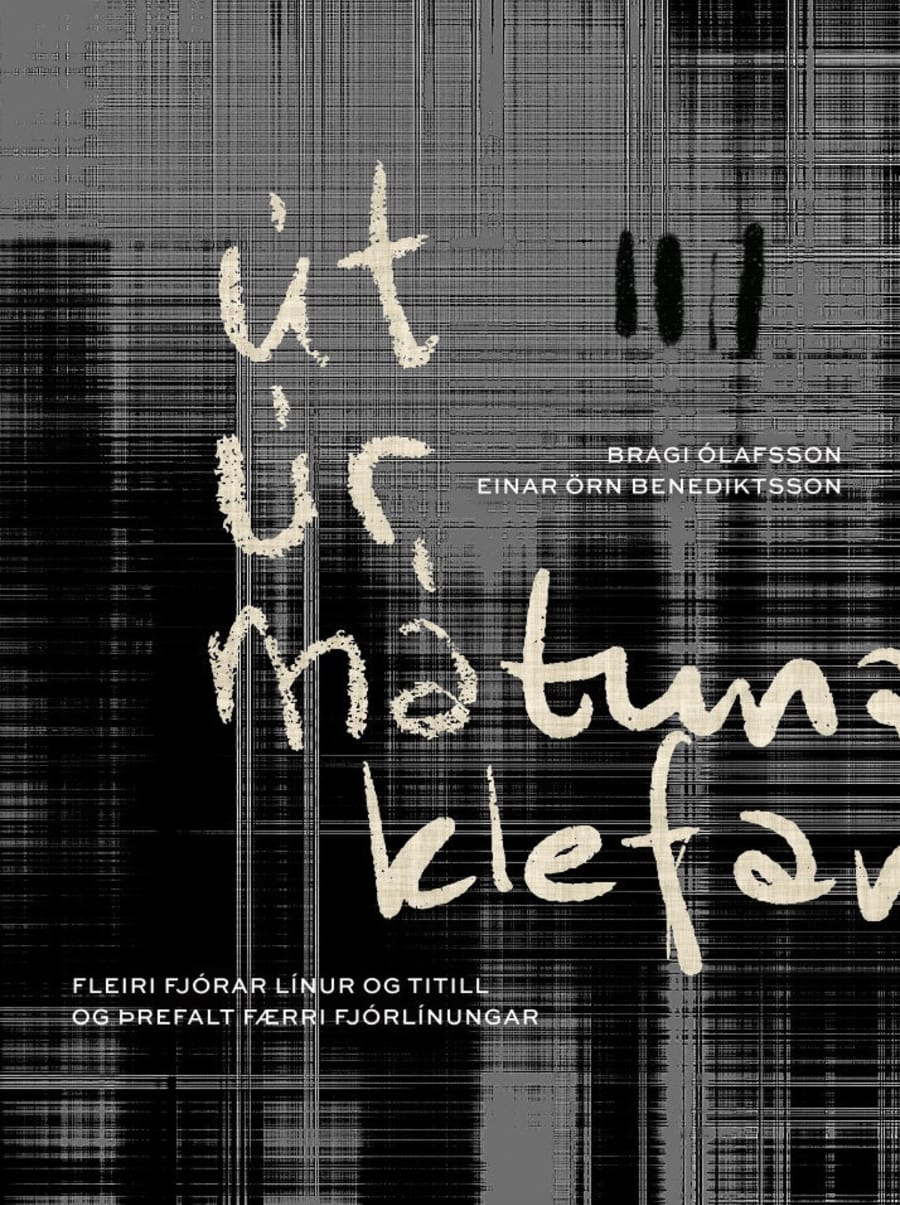
Út úr mátunarklefanum (Out of the Fitting Booth)
Read moreMeð Út úr mátunarklefanum má segja að höfundarnir séu endanlega komnir út úr klefanum, eftir að hafa tekið sér góðan tíma til að velja sér viðeigandi búning.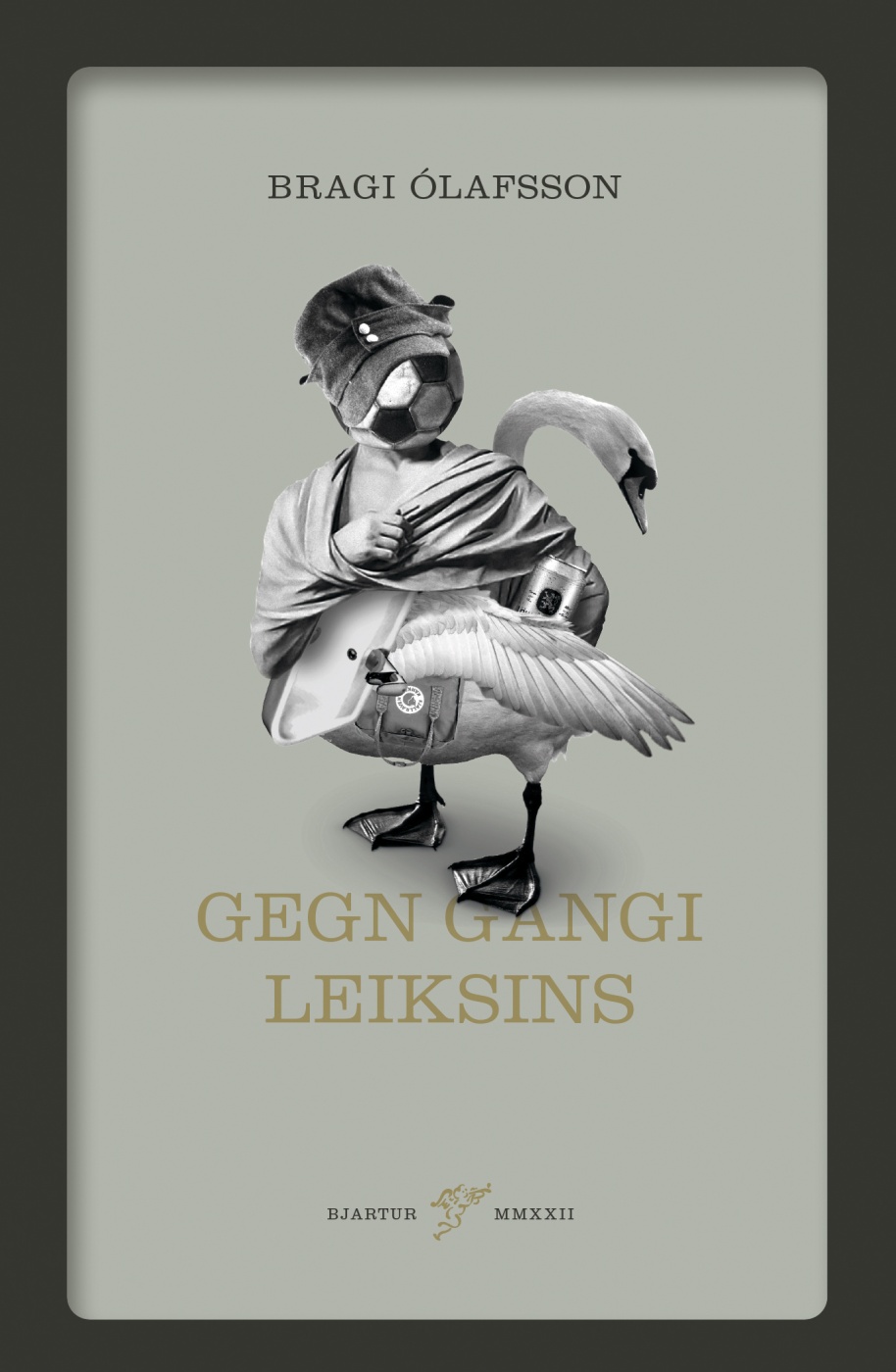
Gegn gangi leiksins (Against the Course of the Game)
Read moreSjö ár eru liðin frá því ljóðskáldið Svanur Bergmundsson losnaði úr klefa sínum á Litla-Hrauni, eftir að hafa afplánað dóm fyrir manndráp.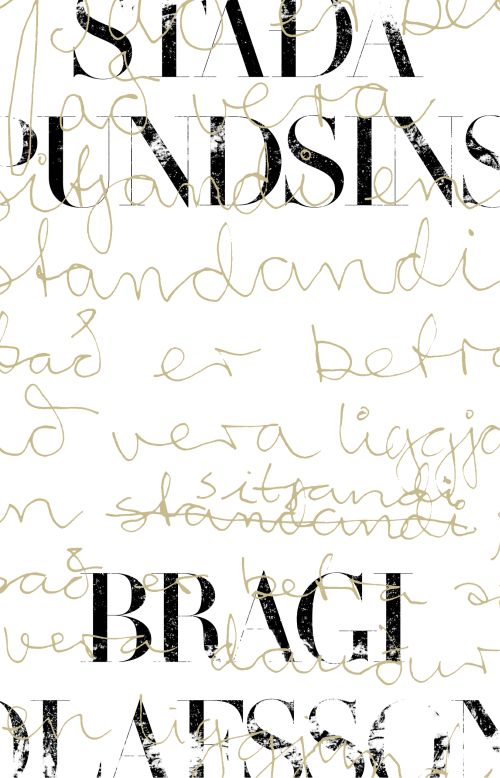
Staða pundsins (The Value of the Pound)
Read more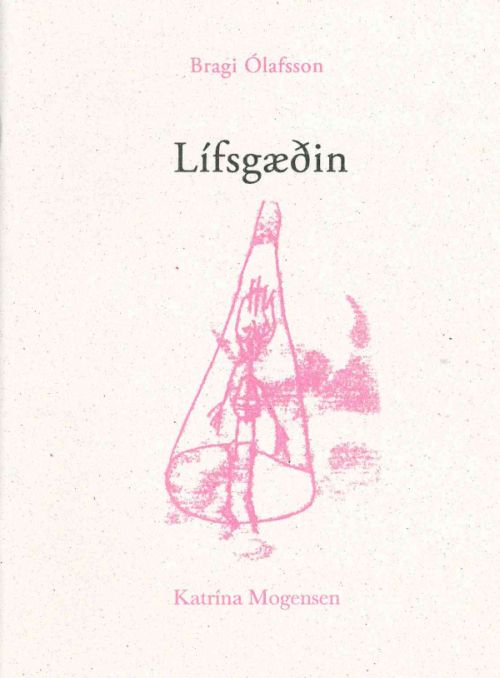
Lífsgæðin (The living standars)
Read more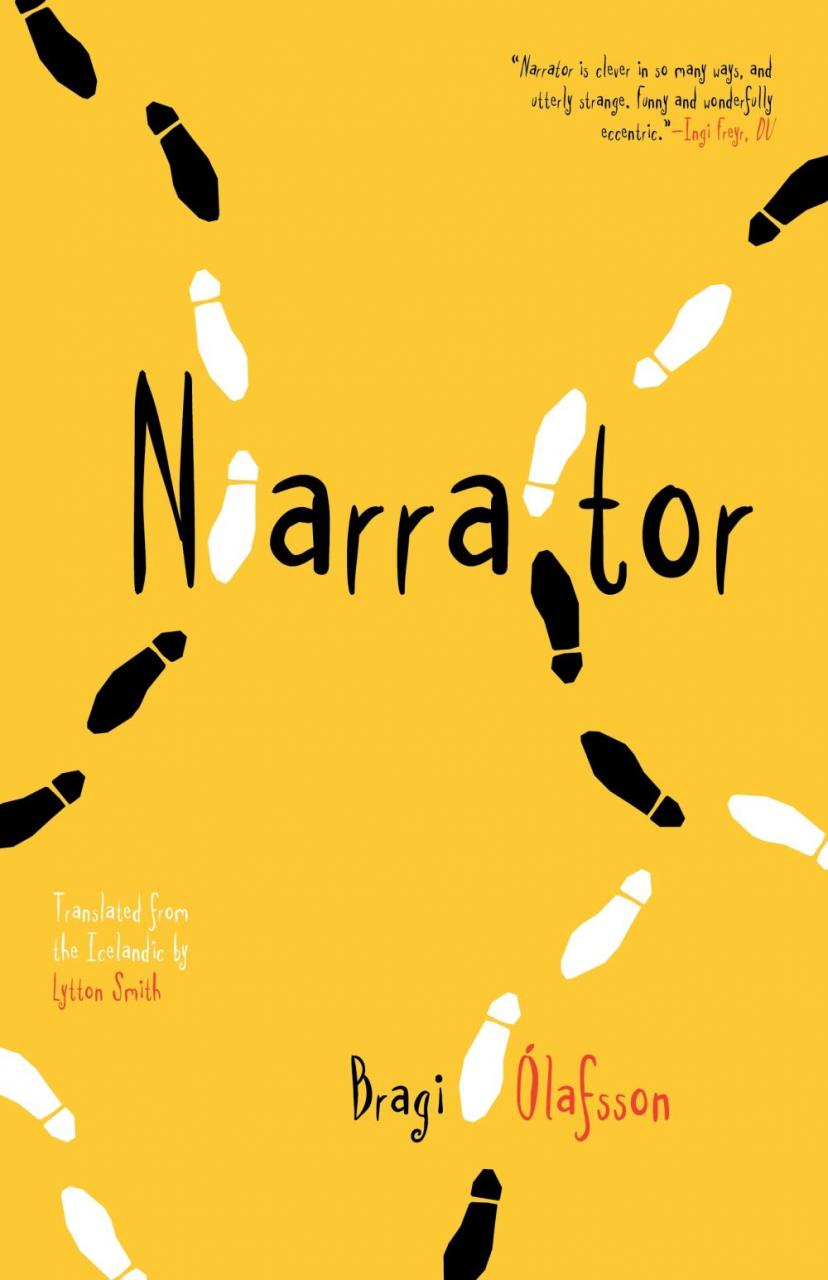
Narrator
Read more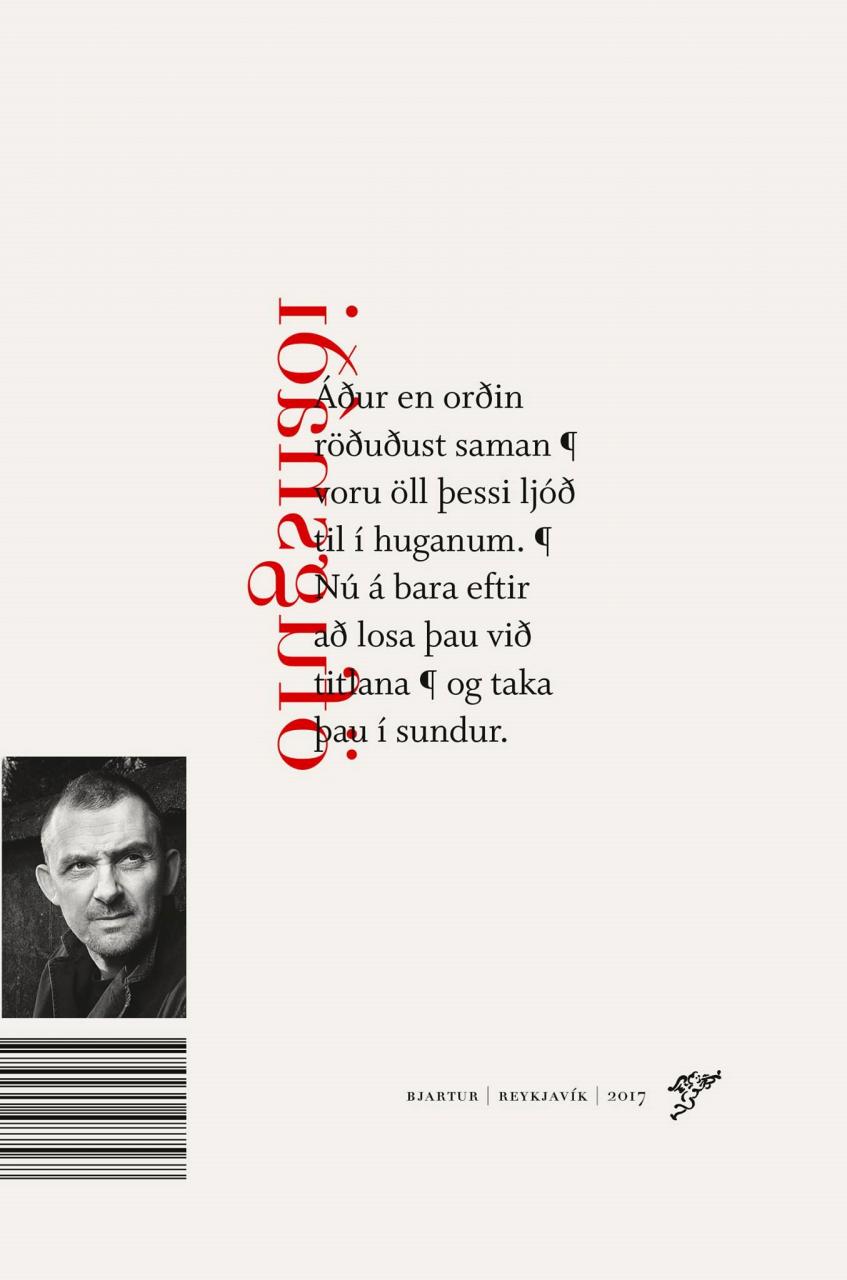
Öfugsnáði (Backward Boy)
Read more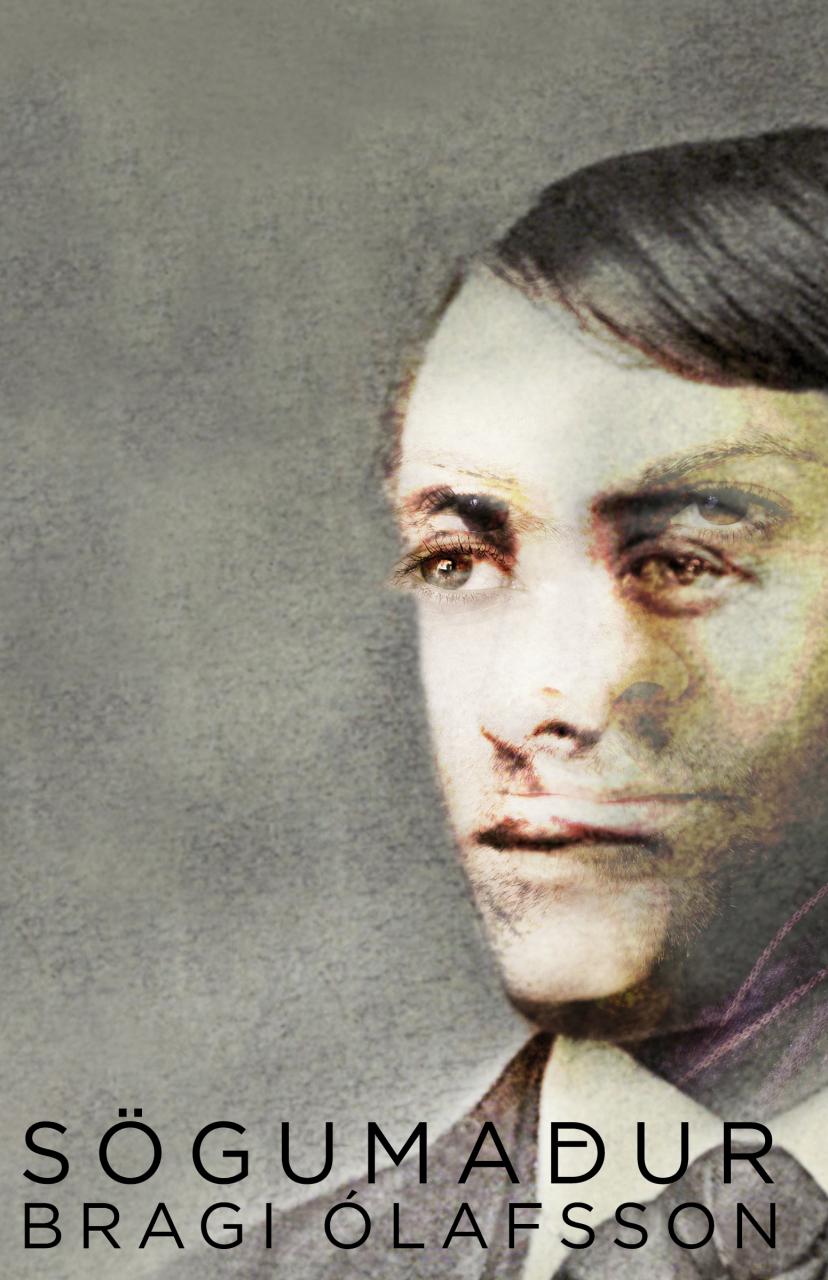
Sögumaður (Narrator)
Read more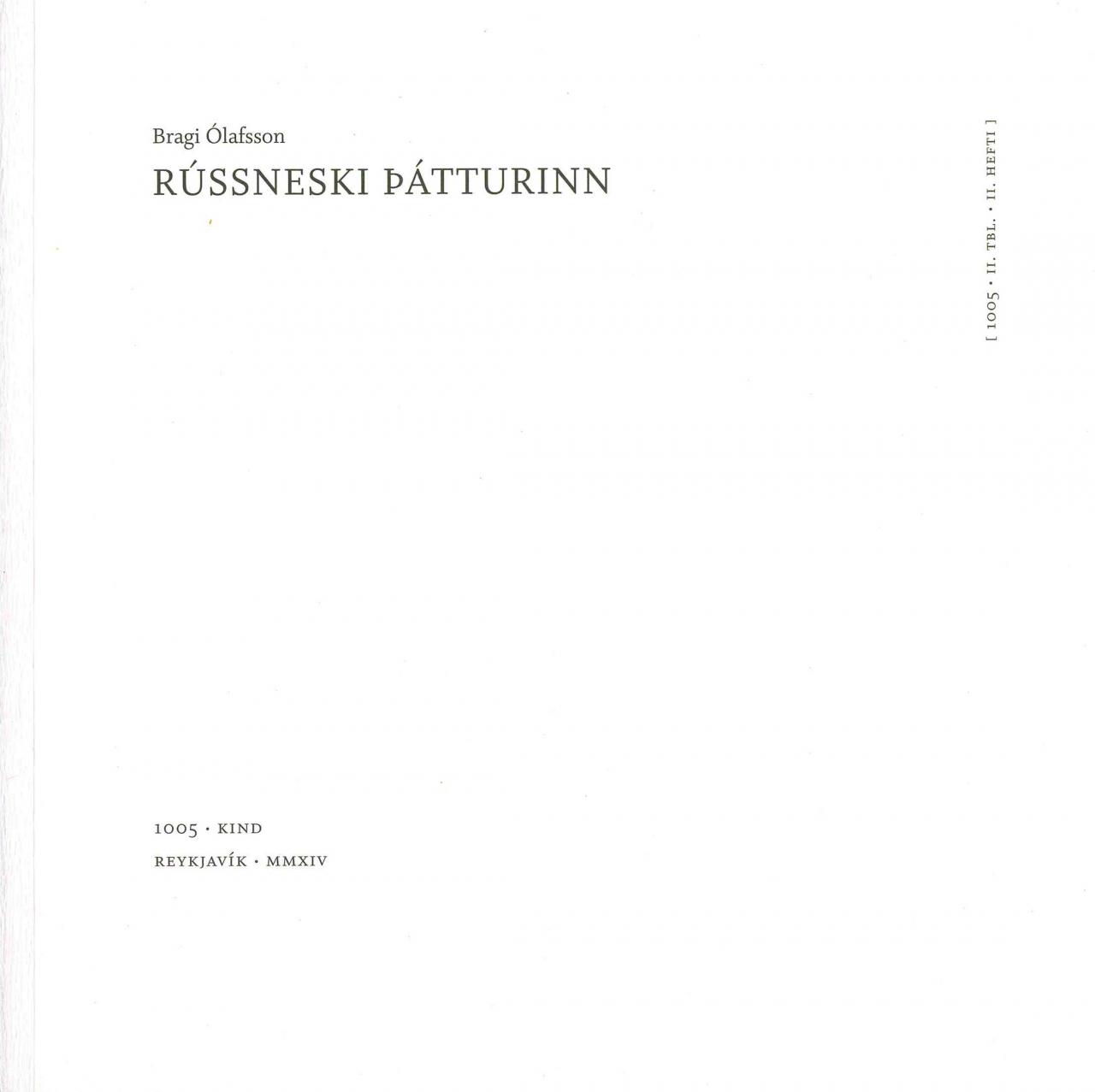
Rússneski þátturinn (The Russian Part)
Read more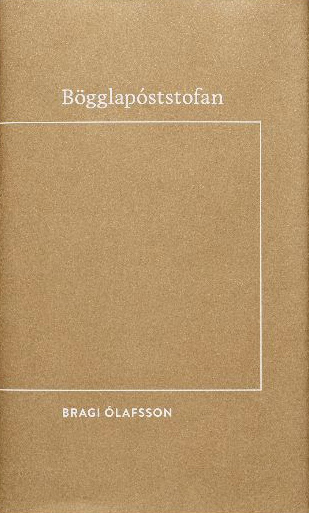
Bögglapóststofan (The Package Post Office)
Read more
